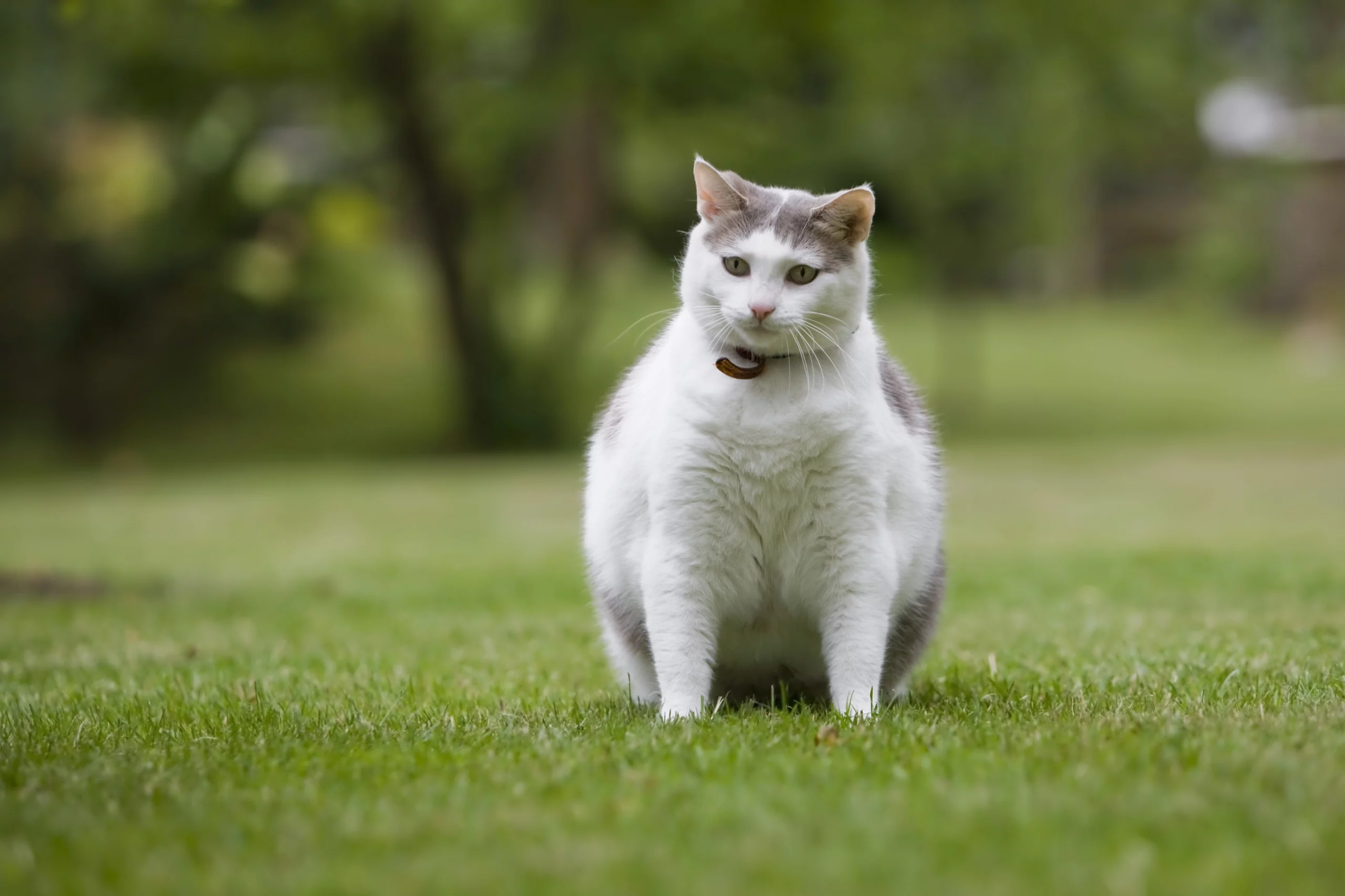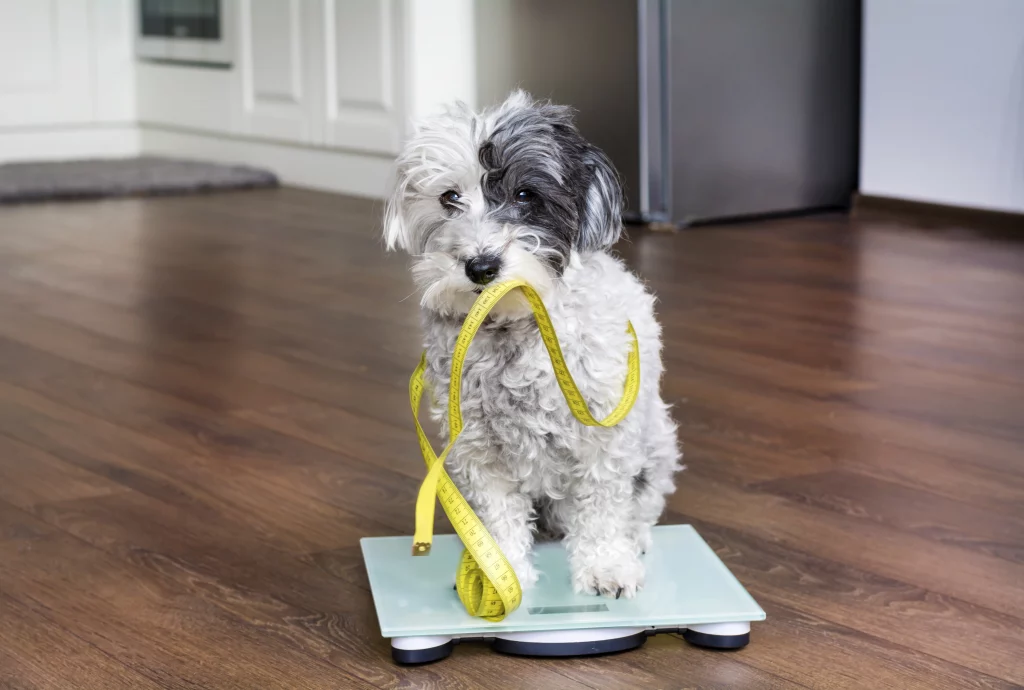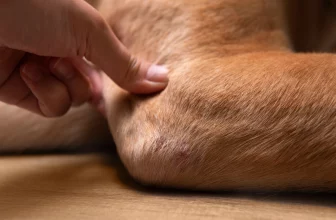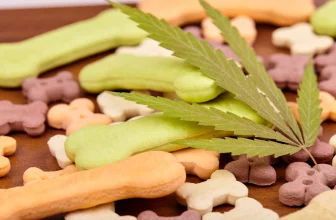

Pot-bellied pets may be cute, but they’re unhealthy because these adorable bellies usually come along with obesity, a chronic health condition. Being overweight or obese has the same effects on humans as pets, which is why pet weight gain must be taken seriously.
Thankfully, there are actions you can take to combat weight gain. Emerging evidence is demonstrating that CBD products could be the answer to a pet who’s gaining weight unhealthily and uncontrollably.
In this guide, we discuss obesity, pet CBD, and how cannabidiol could benefit pets who are gaining weight to support them in returning to a healthy weight.
Table of Contents
Understanding Pet Obesity
Pet obesity can happen for any number of reasons. In most cases, it’s too much food paired with a lack of exercise.
But before you throw your furry friend onto a treadmill, note that conditions like Cushing’s Disease can also lead to a cat or dog gaining weight. Similarly, a new medication may also result in your pet struggling to control and lose weight.
If your pet is gaining weight, it’s important to discuss potential causes with your veterinarian. They might have insight into the effect that a particular medication is having, or whether or not you could curb weight gain with increased exercise or a change in diet.
Dogs Obesity
Weight gain in dogs is a severe problem worldwide. In the U.S., 59% of dogs are considered overweight or obese.
Typically, vets will classify dogs as obese if they weigh over 20% above their ideal body weight. Like humans, height and a dog’s weight will impact your pet’s ideal poundage. Additionally, the breed will also come into a vet’s calculations.
Dog weight gain is a serious problem, and many owners fail to notice that their best friend could benefit from CBD for dogs. We’ll discuss more about how that effect can take place later in the article.
Cats Obesity
Cat weight gain is just as severe for our feline friends as it is for dogs. Unfortunately, 61% of cats are classified as overweight or obese, putting them in the same category as dogs.
Cats gain weight for the same reasons as dogs in many cases. Lack of exercise and too much food form natural barriers to losing weight. They also lead to reduced muscle mass which can further inhibit your cat’s desire to exercise.
Weight loss is essential because continued obesity can result in many problems, including heart disease, dependence on prescription drugs, and a reduced life expectancy.
How to Tell if Your Pet is Obese
You may think it’s easy to spot weight gain in dogs in the same way as spotting weight loss by looking at a dog’s ribs. But you’d be wrong.
According to the Lawndale Veterinary Hospital, the fat pet gap is a phenomenon where owners see their pet’s weight as normal. This prevents them from considering weight loss options such as making a change to their pet’s diet.
Unfortunately, this can result in issues that lead to problems with the adrenal glands, abdominal walls, hair loss, and other symptoms.
Symptoms of Obesity: Is Your Pet at Risk?
If overweight, your pet is at a higher risk of everything from heart attacks to surgical complications. Here are the red flags of pet obesity:
· You struggle to feel their ribs, spine, or waistline.
· Abdominal sagging.
· Excessive panting.
· Regular fatigue.
· Needing help to jump onto the sofa.
· Refusal to move.
· Disinterest in playing.
Weight is a massive problem, especially in older dogs and cats. Regardless of whether your pet gets too much in portion sizes or is lacking exercise, it’s essential to take action.
The Role of Diet and Exercise in Pet Obesity
One of the chief CBD facts is that you cannot just give a pet some CBD oil and expect the weight to fall off. Diet and proper exercise are the twin pillars of a healthy pet.
Crafting a Balanced Diet
As with humans, a balanced diet is crucial to prevent your pet from putting on weight, fulfilling their nutritional needs, and providing them with some tasty food.
The first step is to approach your vet to ensure that an underlying disease, such as hypothyroidism, doesn’t cause your dog’s symptoms. If your pet is otherwise healthy, it’s time to focus on the calories to help them burn some fat.
Here are some tips for building positive eating habits:
· Meal Measuring – Keep a food diary for your puppy or kitty. Measure out their food with a cup and track it.
· Build a Schedule – Begin offering meals on a set schedule. This includes removing food your dog doesn’t eat within 15-30 minutes of serving. It stops them from grazing.
· Count Calories – Choose treats, such as CBD treats, that are low in calories.

Daily Exercises to Keep Your Pet Fit
The key to good pet health is to increase their activity levels through exercise. Don’t worry; burning fat with exercise isn’t rocket science. Unlike many humans who hate the gym, pets love exercise.
Here are some daily exercise ideas to deal with pet obesity:
· Walking
· Fetch
· Agility courses
· Swimming
· Hiking
· Doggy daycare
· Dog yoga
· Frisbee
CBD Against Obesity: An Effective Solution
People wondering how CBD works may have learned that cannabidiol, or CBD, can also aid in weight loss. It certainly cannot substitute for healthy dog food or cat exercises, but it’s an excellent support option.
CBD Benefits for Pets
· Regulate appetite.
· Gain healthy energy.
· Burn fat.
· Boost metabolism.
· Improve mood.
· Reduce inflammation
· Alleviate pain.
· Improve heart health.
· Regulate their blood sugar levels, preventing a wide range of diseases.
The benefits listed above are possible in dogs, although it’s important that you find a reputable pet CBD brand, such as Lola Hemp, administer the product correctly, keep a close eye on the benefits with the help of your veterinarian.
Lolahemp Products Can Aid Pet Weight Management
CBD can be a big help when you’re dealing with a pet who needs to lose weight. In many cases, weight gain can contribute to higher levels of inflammation, reduced motivation to exercise, and discomfort or pain when moving around.
On top of a regulated appetite and healthy metabolism, CBD’s primary noted benefit for dogs is that it can help with movement. This may be due to the fact that it engages with the endocannabinoid system which moderates inflammation and pain responses.
Dogs who use CBD appropriately will often see improved mobility, and this contributes to easier exercise which is the quickest path to weight loss in dogs.
Find their favorite flavor with the help of Lolahemp, the number one CBD brand in the industry. Check out a range of CBD treats in their favorite flavors or apply topicals to improve their appearance or treat pain and immobility that’s stopping their get-up-and-go.
10 FAQs on Pet Weight Gain
1. How can I get my pet to gain weight?
Check with your veterinarian to see if there’s an underlying medical issue. If your pet is otherwise healthy, talk with your vet to explore options for weight gain.
2. Why is my dog gaining weight all of a sudden?
There could be a health problem contributing to your dog’s weight gain. You can also look into their lifestyle habits to find a cause. Are you overfeeding? Are you giving your pet the amount of exercise they require? These are all possible answers.
3. What causes animals to gain weight?
The most common reasons are lack of exercise and overfeeding.
4. Why is my dog not eating much but still gaining weight?
This is something to discuss with your veterinarian. Investigate the calorie count in the treats and food that you’re giving your pet.
5. What can I give my dog to gain weight?
Try giving them food they enjoy more often. You might also find that CBD oil or treats can help your dog get a more regular appetite. Over time, a balanced appetite will allow your pet to start gaining back weight they’ve lost.
6. How quickly do dogs put on weight?
It depends on the dog’s metabolism and level of exercise. Small dogs might be able to put on weight relatively quickly when they’re living an unhealthy lifestyle. It could take longer for large dogs. In general, though, large swings in weight are unusual for pets and should be explored with a veterinarian.
7. Why do dogs gain weight as they get older?
Dogs gain weight as they age because of the same reasons humans do. Over time, the metabolism slows down, meaning they’re not burning the calories as they used to.
8. What causes a cat to gain weight quickly?
Talk with your vet about the possibility that your cat has a parasite or even hyperthyroidism. Quick swings in weight are commonly due to underlying health conditions.
9. Do cats gain weight when stressed?
Some cats could gain weight when stressed. It depends on the individual. If your cat tends to overeat when they’re stressed, this will contribute to weight gain. Alternatively, some stressed cats will avoid eating and lose weight. It all depends on the personality of your cat.
10. Is it normal for cats to gain weight as they age?
Cats tend to slow down a little bit and gain weight up until age eight. Reduced activity and general change in lifestyle is normal as your cat gets older, but you should still monitor their weight as obesity isn’t normal in cats. It’s normal to gain weight, but it’s not normal to become obese.






